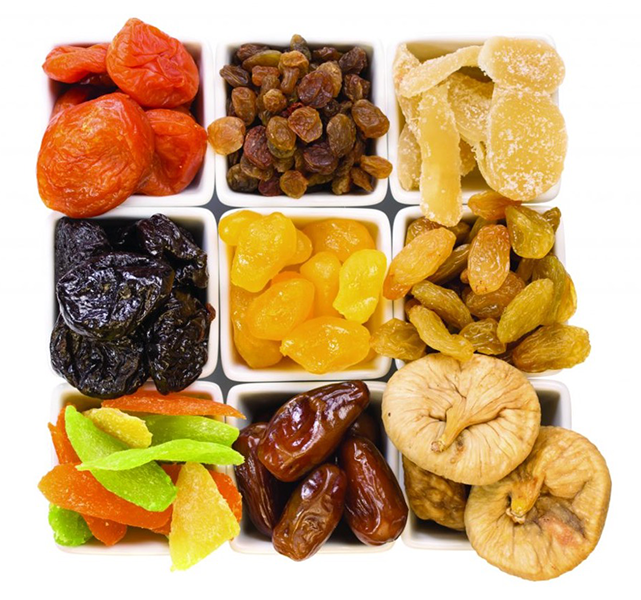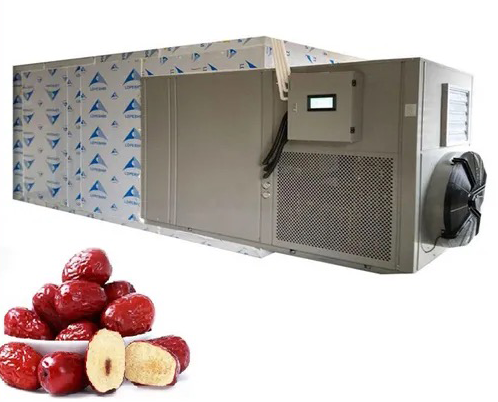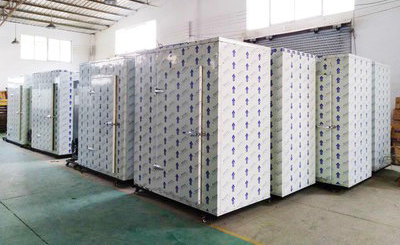
Content Menu
● Understanding Heat Pump Dryers
● Environmental Benefits of Heat Pump Dryers
● Applications in Food Drying
● Cost Savings Over Time
● Enhanced Performance Features
● Impact on Food Preservation
● Sustainability in Manufacturing
● Conclusion
● FAQ
>> 1. What is a heat pump dryer?
>> 2. How does a heat pump dryer save energy?
>> 3. Can heat pump technology be used for food drying?
>> 4. Are heat pump dryers more expensive than traditional dryers?
>> 5. How do I maintain my heat pump dryer?
>> Citations:
In recent years, the focus on energy efficiency and environmental sustainability has led to a surge in the popularity of heat pump dryers. These appliances not only offer significant benefits for household energy consumption but also contribute positively to the environment. This article will explore the numerous advantages of heat pump dryers, particularly in the context of food drying applications, and how they can be a game-changer for both consumers and manufacturers.

Understanding Heat Pump Dryers
Heat pump dryers operate on a closed-loop system that efficiently recycles heat. Unlike traditional dryers that expel warm, moist air outside, heat pump dryers utilize this air to remove moisture from clothes or food items and then reuse it. This process significantly reduces energy consumption while maintaining effective drying capabilities.
Key Features of Heat Pump Dryers:
- Energy Efficiency: Heat pump dryers can reduce energy use by up to 50% compared to conventional models.
- Lower Operating Costs: Although they may have a higher initial cost, the long-term savings on energy bills can be substantial.
- Gentle Drying Process: They dry items at lower temperatures, which is less damaging to fabrics and food nutrients.
- Versatile Installation: Heat pump dryers do not require external venting, making them suitable for various locations in homes or commercial settings.
Environmental Benefits of Heat Pump Dryers
The environmental advantages of heat pump dryers are multifaceted and significant:
- Reduced Carbon Footprint: By consuming less energy, heat pump dryers contribute to lower greenhouse gas emissions. They can produce up to 50% less CO2 compared to traditional electric dryers and 70% less than gas dryers.
- Sustainable Resource Use: The recycling of heat means that these dryers use less electricity overall, aligning with global sustainability goals.
- Less Waste Generation: By extending the lifespan of clothing and food products through gentler drying processes, heat pump dryers help reduce waste associated with damaged goods.
Applications in Food Drying
Heat pump technology is not just limited to laundry; it has valuable applications in food drying as well. Food dehydrators equipped with heat pump technology offer several advantages:
- Nutrient Preservation: Heat pump food dehydrators maintain lower temperatures during the drying process, which helps preserve vitamins and minerals in foods better than traditional methods. This is particularly important for health-conscious consumers who want to retain the nutritional value of their dried foods.
- Energy Efficiency in Food Processing: These dehydrators consume significantly less energy while effectively removing moisture from foods, making them ideal for manufacturers looking to minimize operational costs. The ability to dry food efficiently can lead to reduced energy costs, which is crucial for businesses operating on thin margins.
- Versatile Usage: Heat pump dehydrators can handle a variety of foods, from fruits and vegetables to meats and herbs, making them versatile tools for both home cooks and commercial producers. This versatility allows users to experiment with different drying techniques and recipes, enhancing culinary creativity.
Cost Savings Over Time
While the initial investment in a heat pump dryer or dehydrator may be higher than traditional models, the long-term savings are compelling:
- Lower Energy Bills: Users can expect to see a reduction in their electricity bills due to the efficient operation of heat pump technology. This reduction can significantly offset the initial purchase cost over time.
- Extended Lifespan of Products: By preserving food and clothing better than conventional methods, consumers save money by reducing replacement costs. Items that last longer mean fewer purchases over time, contributing further to overall savings.

Enhanced Performance Features
Heat pump dryers come with various advanced features that enhance their performance:
- Smart Technology Integration: Many modern heat pump dryers include smart technology that allows users to monitor and control their drying cycles remotely via smartphone apps. This feature enables users to optimize their energy usage further by running cycles during off-peak hours when electricity rates are lower.
- Sensor Drying Technology: This technology detects moisture levels in clothes or food items and adjusts drying times accordingly. It prevents over-drying, which can damage fabrics or deplete nutrients in food products.
- Quiet Operation: Heat pump dryers generally operate more quietly than traditional dryers due to their design and technology. This feature is particularly beneficial for homes where noise reduction is a priority.
Impact on Food Preservation
The impact of using heat pump technology extends beyond just drying efficiency; it also plays a crucial role in food preservation:
- Flavor Retention: The gentle drying process helps retain the natural flavors of foods, making them more enjoyable when rehydrated or consumed as snacks. For instance, dried fruits maintain their sweetness and vibrant colors much better than those processed with high-temperature methods.
- Reduced Risk of Spoilage: By effectively removing moisture at lower temperatures, heat pump dehydrators minimize the risk of spoilage during the drying process. This is especially important for perishable items like meats that require careful handling during dehydration.
Sustainability in Manufacturing
For manufacturers producing heat pump dryers and dehydrators, embracing sustainable practices is essential:
- Eco-Friendly Materials: Many manufacturers are now focusing on using recycled materials in their products. This commitment not only reduces waste but also appeals to environmentally conscious consumers who prioritize sustainability.
- Efficient Production Processes: Implementing energy-efficient production methods helps reduce the carbon footprint associated with manufacturing these appliances. Companies that invest in sustainable practices often see improved brand loyalty from consumers who value environmental responsibility.
Conclusion
Heat pump dryers represent a significant advancement in energy-efficient home appliances. Their ability to reduce energy consumption, lower carbon footprints, and extend the life of clothes and food makes them an attractive option for environmentally conscious consumers. As more manufacturers adopt this technology for both laundry and food processing applications, the benefits will continue to grow.
The integration of smart technologies further enhances their appeal by providing users with control over their energy usage while ensuring optimal performance. With an increasing emphasis on sustainability across all sectors, heat pump technology stands out as a leading solution for reducing environmental impact while maintaining high standards of efficiency and effectiveness.

FAQ
1. What is a heat pump dryer?
A heat pump dryer is an energy-efficient appliance that uses a closed-loop system to recycle air for drying clothes or food items without venting hot air outside.
2. How does a heat pump dryer save energy?
Heat pump dryers save energy by recycling warm air instead of generating new heat continuously, which reduces overall electricity consumption by up to 50%.
3. Can heat pump technology be used for food drying?
Yes, heat pump technology is highly effective for food drying as it operates at lower temperatures that help preserve nutrients while using less energy.
4. Are heat pump dryers more expensive than traditional dryers?
While they have a higher upfront cost, heat pump dryers provide significant savings on energy bills over time, making them cost-effective in the long run.
5. How do I maintain my heat pump dryer?
Regular maintenance includes cleaning lint filters, ensuring proper drainage of moisture collected during drying, and checking seals for efficiency.
Citations:
[1] https://acespace.org/blog/2023/04/06/save-on-an-electric-heat-pump-dryer/
[2] https://www.energystar.gov/products/clothes_dryers/heat-pump-dryer
[3] https://www.webmd.com/diet/dehydrating-food-good-for-you
[4] https://create.vista.com/photos/dehydrator/
[5] https://www.youtube.com/watch?v=mtDzdYoyeR8
[6] https://www.youtube.com/watch?v=TsC60QBhSPo
[7] https://www.beko.com/za-en/Blog/Kitchen-Inspiration/why-heat-pump-dryer-more-energy-efficient
[8] https://www.savemoneycutcarbon.com/learn-save/heat-pump-tumble-dryers-all-you-need-to-know/
[9] https://www.bestbuy.com/discover-learn/10-reasons-to-buy-a-food-dehydrator/pcmcat1634332391134
[10] https://www.istockphoto.com/photos/food-dehydrator











